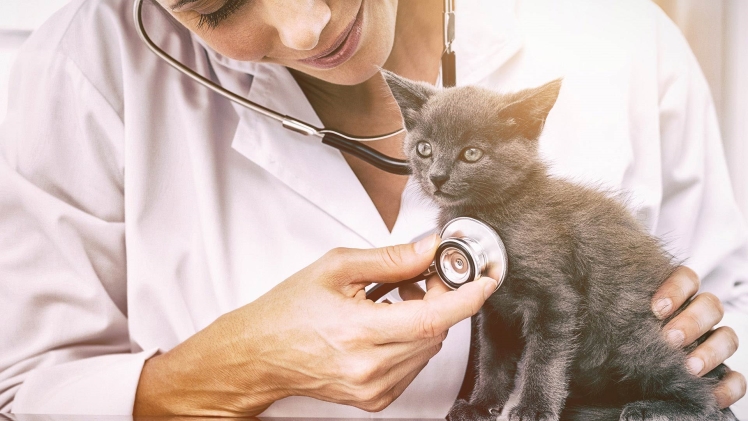Is your cat losing weight and having diarrhea without knowing what the problem is? They might be infected with intestinal worms. First-time cat owner and do not know what to do. This article will show you information about cat wormer and how and when to administer them to your pet.
Learning the types of worms would be the first step
Tapeworms and roundworms are actually the most common intestinal worms in cats.
-
Roundworms
Intestinal roundworms are the most common intestinal parasites among cats. Toxascaris leonina and Toxocara cati are both roundworms that are common in cats. These worms’ eggs are discharged in the feces and can live in the surroundings for many years. In two methods, these eggs can contaminate other cats. To begin, a cat may consume eggs straight from a contaminated area. Also, if another animal eats the eggs, it can function as an “intermediate host” and transfer the illness onto cats if it preys on the infected intermediate host.
In most situations, roundworm treatment should be done regularly throughout the cat’s existence. A feces sample can always be obtained and analyzed in a laboratory to detect worm eggs to establish whether a cat is infested with worms.
-
Hookworms
These are tiny intestine roundworms found in almost all countries. These worms can cause inflammation of the gut lining where they adhere, resulting in bleeding, weight loss, and anemia.
-
Tapeworms
These are elongated, thin worms with several segments. Mature segments carrying eggs are discharged from the tapeworm’s end and travel through the feces. These segments, which resembled pieces of rice, can be observed on the cat’s fur in the anus area, in their feces, and on the cat’s bedding.
Fleas spread Dipylidium caninum to cats. The young flea larvae consume the worm’s eggs, but infection is transmitted to a cat once it eats an infected flea when grooming. Any cat infested with fleas is likely to have Dipylidium caninum.
Worming your cats
Below are cat wormer administration recommendations.
-
Roundworms
- Ages 3 weeks to 8 weeks, treat your kitten for roundworms every two weeks, then monthly until six months of age.
- Adult cats six months above should be treated every 1-3 months.
-
Tapeworms
- Adult cats more than six months old should be treated every 1-3 months with a product against both roundworms and tapeworms.
- In flea-infested kittens, a product active for Dipylidium caninum must also be administered.
Which product is safe to use?
There are several worming medications commercially available, and medication availability varies by country. While worming treatments are available in pet stores and perhaps some supermarkets, they are frequently outdated or ineffective, while some are dangerous to use on cats.
It is often best to ask the opinion of your veterinarian, who is familiar with the sorts of worms that are common in your area and will be able to prescribe the first most effective and proven medications for your cat. Furthermore, specific treatments available may be simple to administer, such as an injectable given by your veterinarian, a small pill that your cat can take with food, or even skin drops.
If you suspect your cat of having worm infestation, always consider visiting your veterinarian first for the safest medication that you can administer your pet. You can also research your cat’s health and diseases that may occur to them, and it is one of the pet owners’ obligations. Happy petting!

